Jefferson Davis was born on June 3, 1808, in Fairview, Kentucky, though he grew up in Wilkinson County, deep in Mississippi’s cotton country.
Davis entered West Point in 1824. Two years later, he was placed under house arrest for his involvement in the “Eggnog Riot.” Following graduation, he served under Zachary Taylor and became smitten with Taylor’s daughter, Sarah. Taylor was against the courtship and didn’t attend their wedding. His animosity grew three months later when the young couple contracted malaria while visiting Davis’s sister in Louisiana. Jefferson survived; Sarah did not.
Stricken with grief, Davis retreated to a 800-acre plot his brother Joseph had given him. The land had previously been part of Joseph’s substantial Hurricane Plantation. Jefferson’s plot was named Brierfield Plantation and a manor was built in 1847. With his bother’s financial assistance, the plantation grew to 1,700 acres with over 300 enslaved people by the time the Civil War began.
During this period, Davis became involved in politics, serving as a delegate to the Democratic state convention and campaigning for James K. Polk. He also remarried, taking Varina Howell as his bride in 1845. The couple would have six children, although only one lived to marry and raise a family.
Davis raised a volunteer regiment at the outbreak of the Mexican-American War and served as its colonel under commanding General Zachary Taylor. His troops participated in the siege of Monterrey and the Battle of Buena Vista, where he was shot in the leg. Learning of Davis’s bravery, Taylor is alleged to have said, “My daughter, sir, was a better judge of men than I was.”
Davis was appointed to temporarily fill a vacant Mississippi Senate seat in 1847, and was later elected to it. The Smithsonian Institution also appointed him a regent during this time. Each of these honors stemmed largely from Davis’s distinguished military service.
As a senator, Davis introduced several amendments to the Treaty of Guadalupe Hidalgo, which sought unsuccessfully to annex northwestern Mexico. He also declared Cuba “must be ours” to “increase the number of slaveholding constituencies. Opposed to the Compromise of 1850, Davis resigned to run for the governorship of Mississippi, but lost the election.
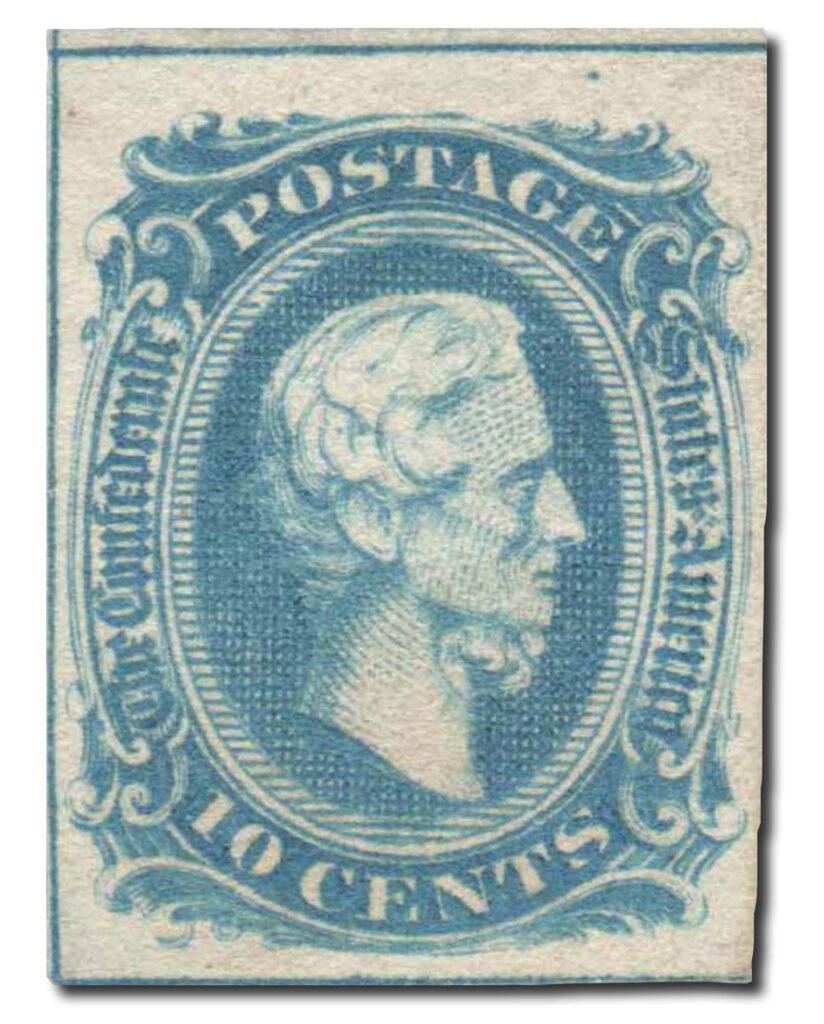
Left without a political office, Davis took part in a pro-slavery convention and campaigned throughout the South for presidential candidate Franklin Pierce. He was rewarded with an appointment to serve as US secretary of War following Pierce’s election. Davis pushed for the Gadsden Purchase of today’s southern Arizona from Mexico, increased the Army from 11,000 to 15,000 troops, and modernized its weaponry. He also oversaw the building of the Capitol Dome. When Pierce lost his bid for re-election in 1857, Davis resumed his own career in the Senate.
On July 4, 1858, Davis delivered an anti-secessionist speech near Boston – a platform he would repeat in October. As he explained after the Civil War, Davis felt each state was sovereign and had the right to secede. But he didn’t believe the North would allow a peaceful separation and urged the South to delay secession for that reason. Davis also knew the South lacked the military and naval resources that the North could field. Lincoln’s election and the rapid declarations of secession sealed Davis’s fate, and he delivered a farewell address to the US Senate on January 21, 1861. He would call that day the saddest in his life.
Davis told the governor of Mississippi he would do whatever the state required of him. On January 23, he was made major general of the Army of Mississippi. Then in early February, the Confederacy held a constitutional convention, which selected Davis as its new president. Davis received the news via telegraph and according to his wife, “looked so grieved that I feared something had befallen our family. He told me (of his appointment) as a man might speak a sentence of death.” Davis was inaugurated on February 18 in front of 5,000 people cheering with zeal. Looking out over them, Davis recalled, “I saw smiling faces, but beyond them I saw troubles and thorns innumerable.”
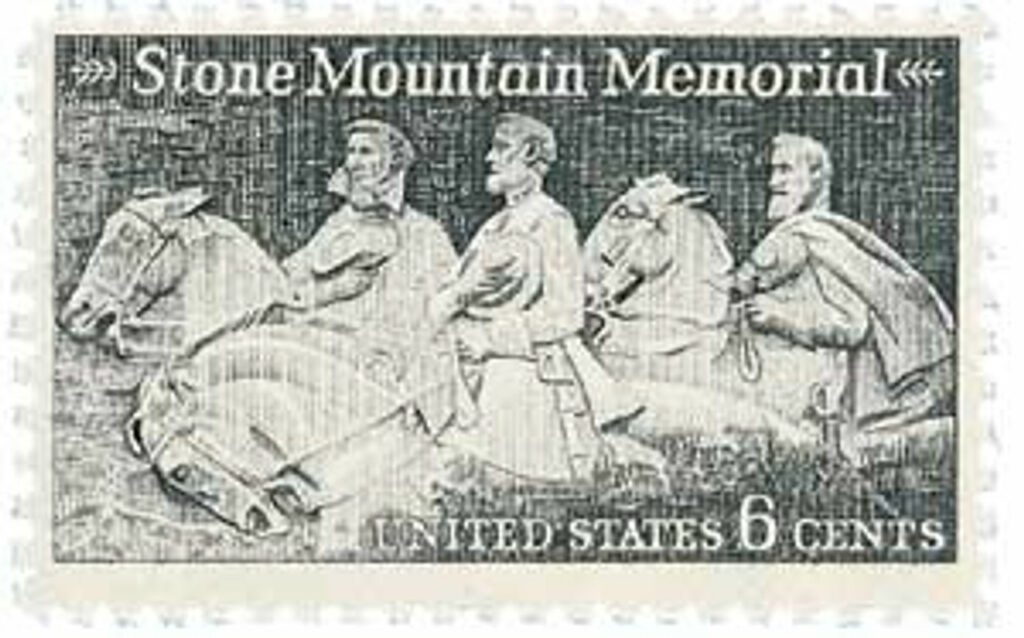
Davis had been a staunch defender of slavery in the years building up to the Civil War, but preferred to avoid both secession and war. He spent the first six weeks of his presidency trying to negotiate with Northern officials until talks broke down over Fort Sumter. When they did, Davis gave the order to fire on the federal fort.
Early on, Davis displayed the characteristics that doomed his leadership, the largest being his reluctance to delegate authority and a dependence on old cronies. Flawed military strategy and insensitivity to the suffering of his followers also hampered Davis’s administration.
Captured on May 10, 1865, Davis spent two years in prison before being released on a bond of $100,000, which was raised by a group of prominent citizens including Horace Greeley, Cornelius Vanderbilt, and abolitionist Gerrit Smith. While he became a symbol of the Confederate “Lost Cause,” Davis urged loyalty to the nation during Reconstruction. Following his death on December 6, 1889, Davis’s funeral, which was one of the largest in the South, included a continuous procession from New Orleans to Richmond.
Davis had outlived the Confederacy, buried all four of his sons, and witnessed his daughter’s engagement to a Yankee from New York. Yet he remained unapologetic to the end. “Were the thing to be done over again, I would do as I then did. Disappointments have not changed my conviction.”
Click here for more Davis stamps and covers.
| FREE printable This Day in History album pages Download a PDF of today’s article. Get a binder or other supplies to create your This Day in History album. |
Discover what else happened on This Day in History.


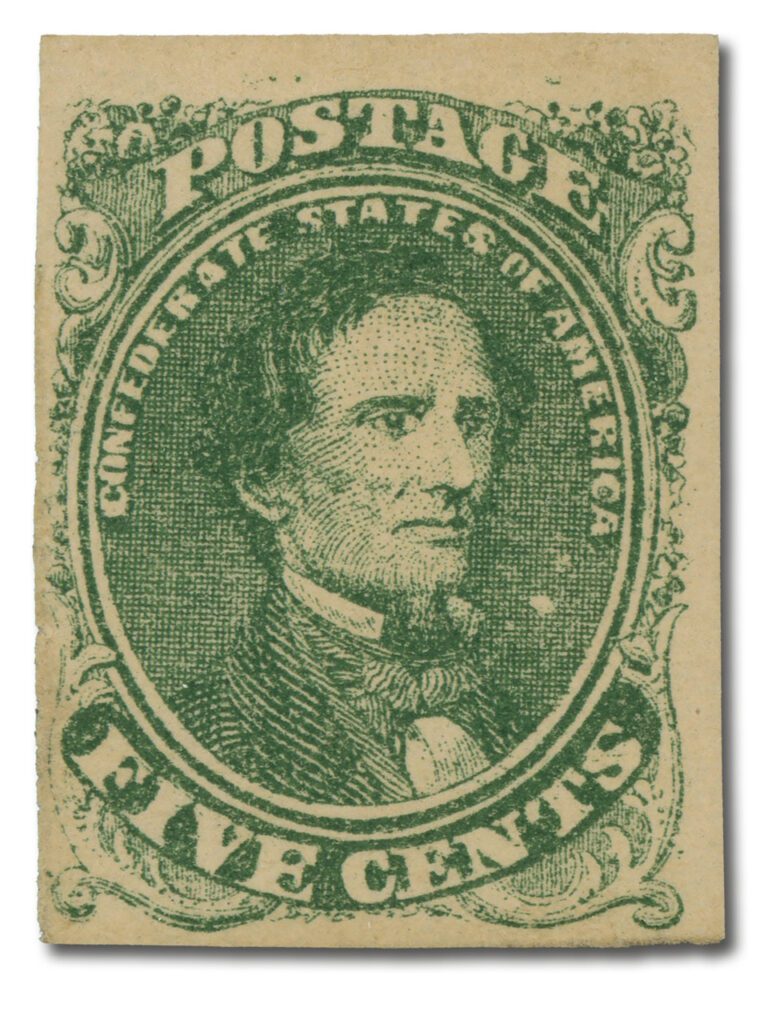
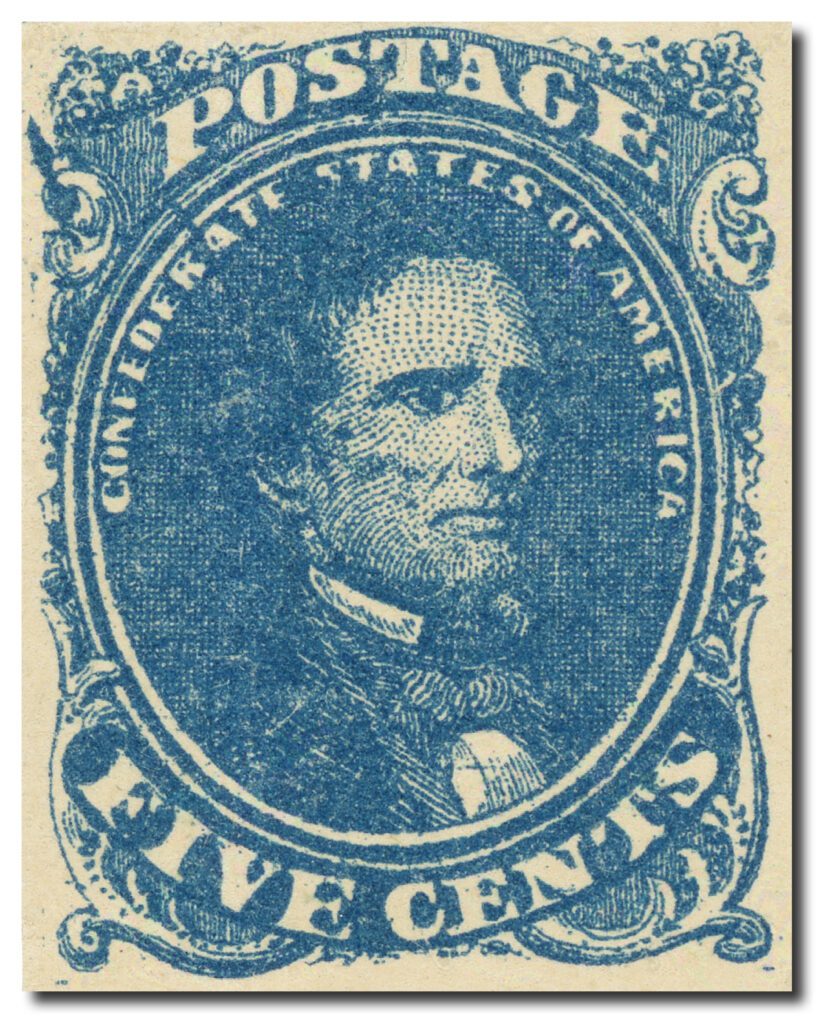
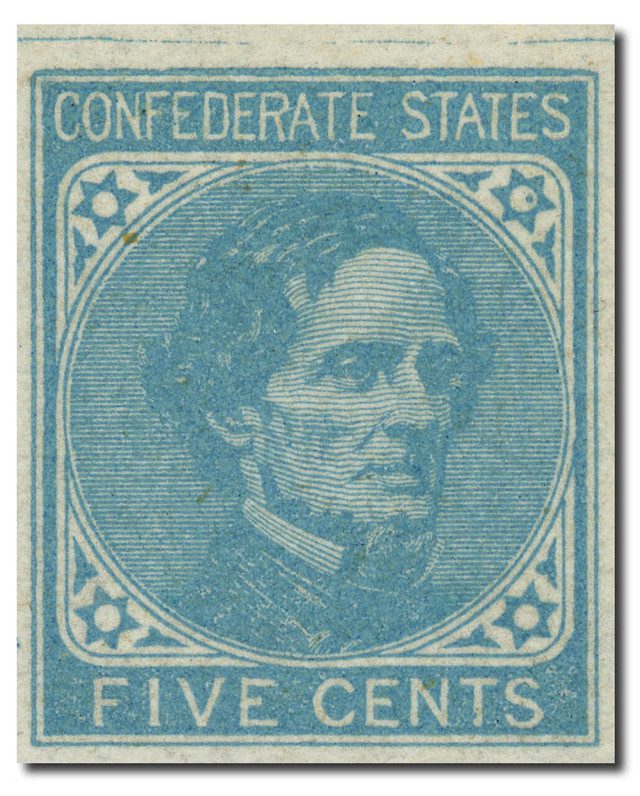
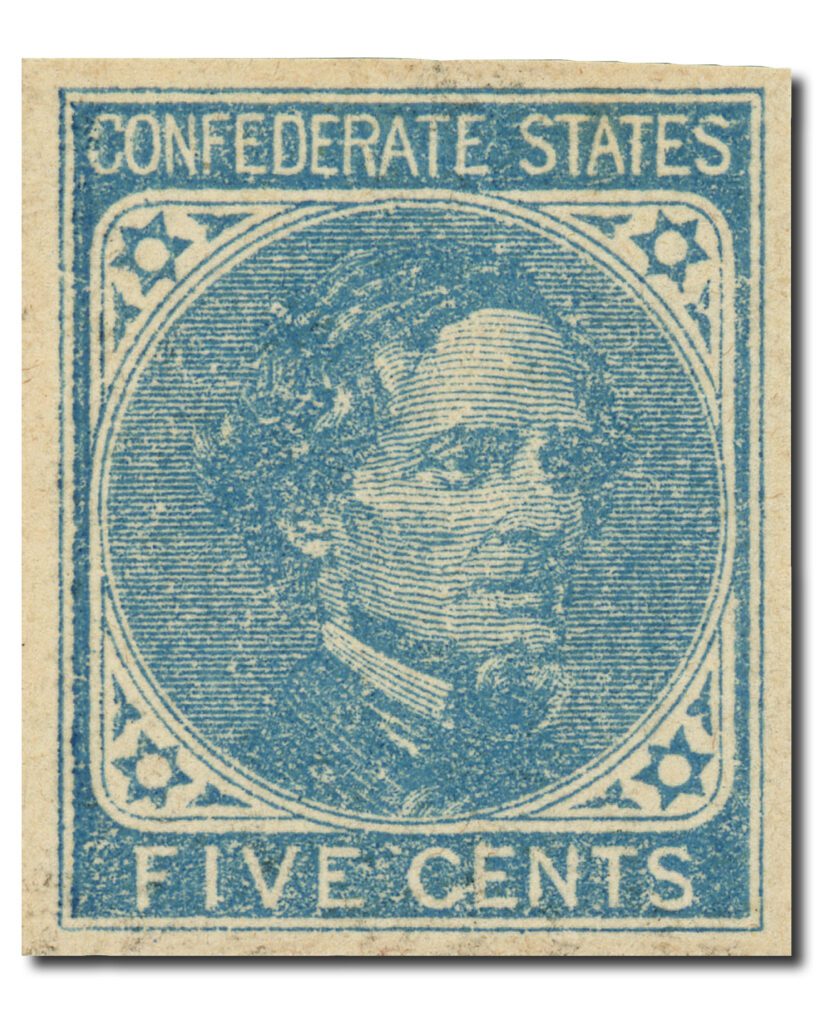
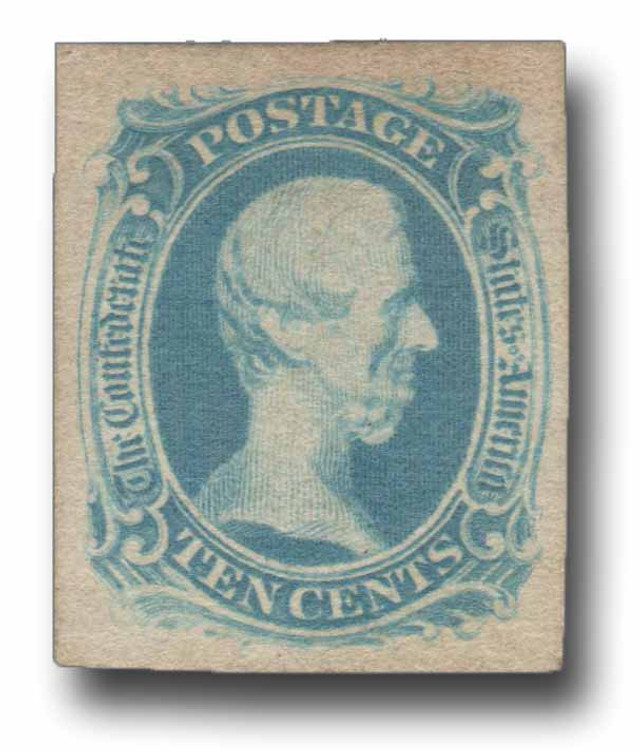
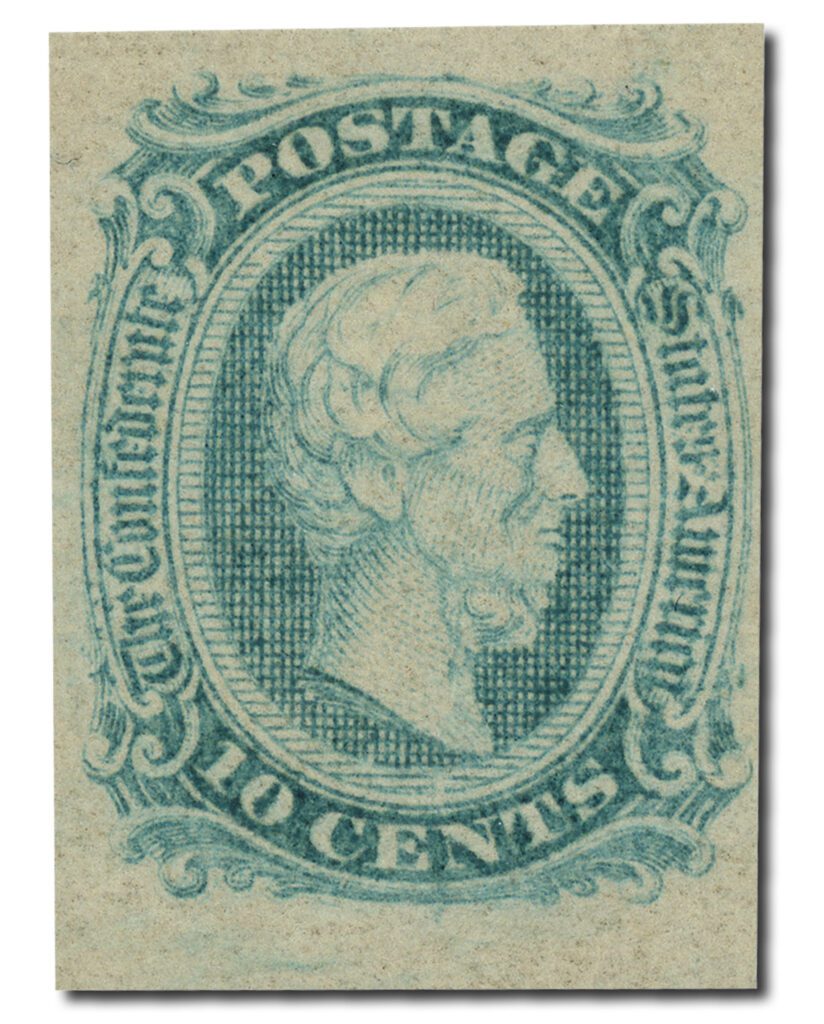
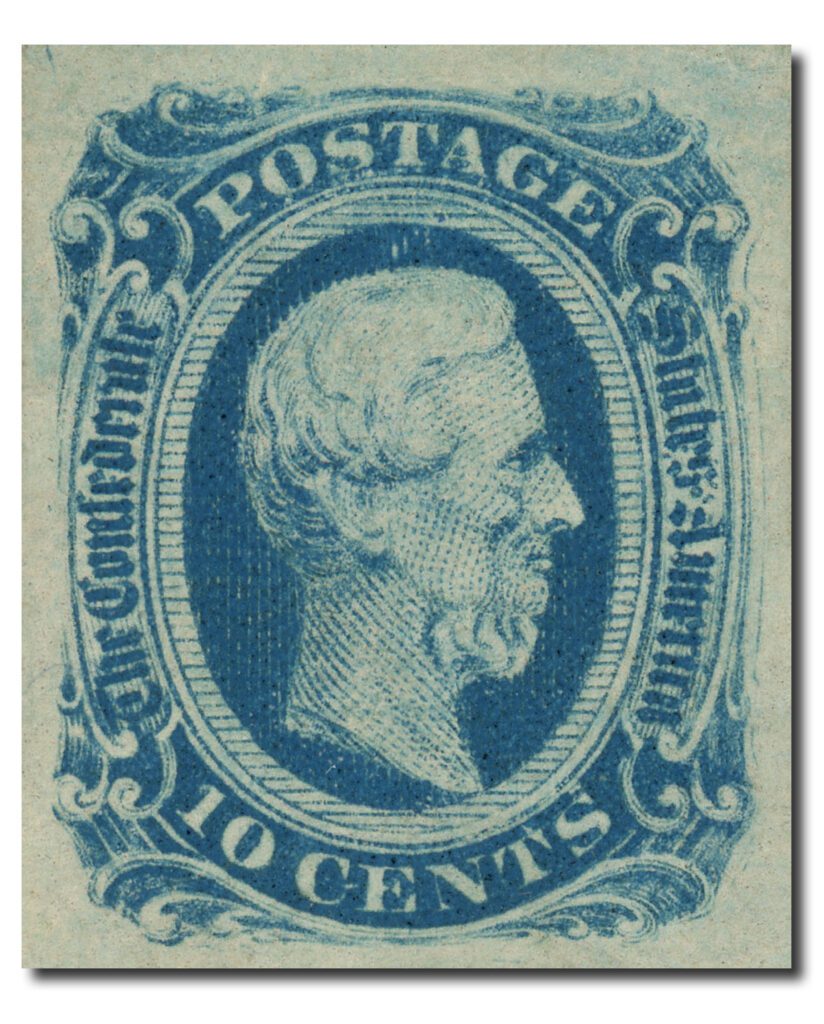
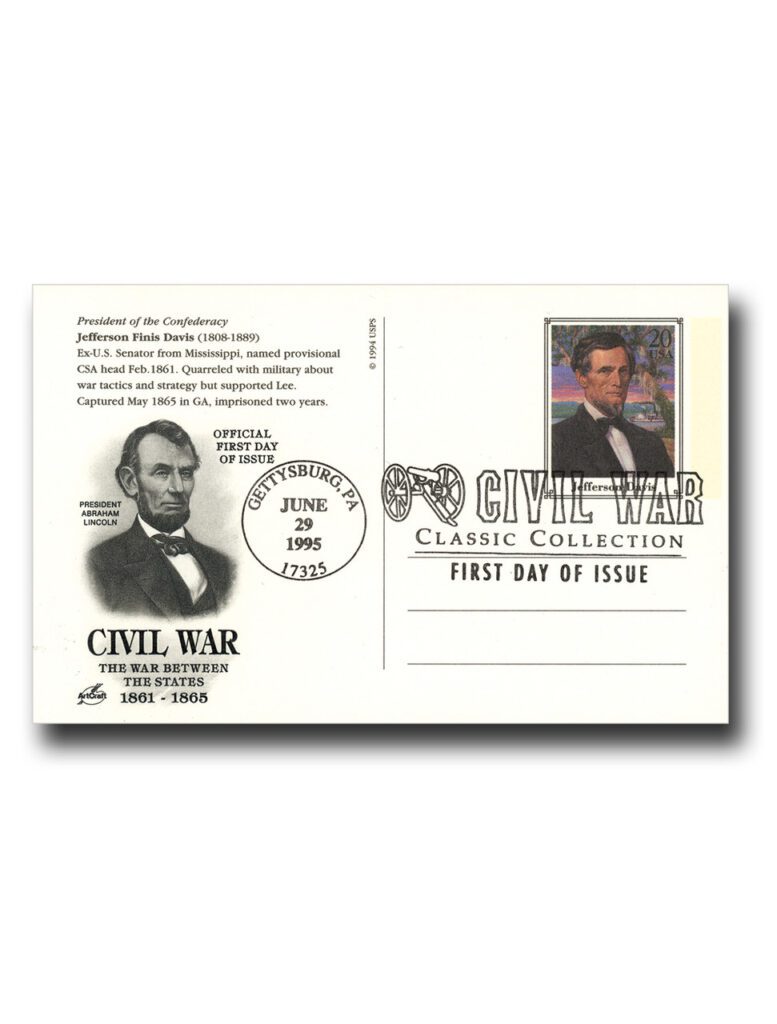
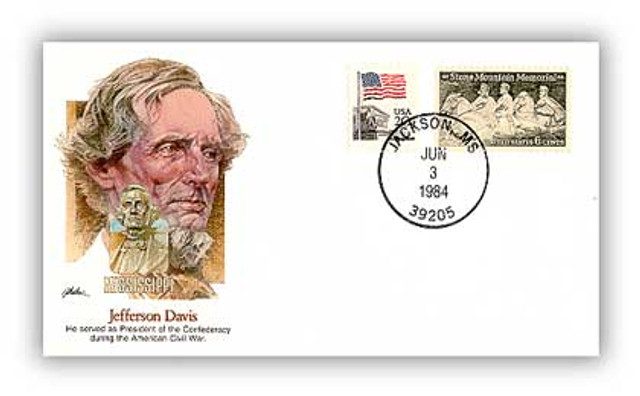

The dates don’t seem correct?
Review Davis both year 1888? It is after he got married in 1824.
Birth year 1888
I think your date of birth is wrong. Should it be 1778?
You are incorrect, his date of birth is June 3, 1808
A good article. What a man! What a great American patriot. What a great leader.
Davis an American patriot?…hardly. He worked to tear this nation apart. And what was the result?…death and destruction, poverty for the southern states, and 100 years of Jim Crow racism. If Davis and other southern leaders had tried to resist secession instead of leading it, history might have turned out differently.
Puts a human face on a man whose motives and actions might have remained suspect because of his identification with the Confederacy. We learn – going forward (to use a popular term of the moment) – that things are never wholly as they seem. Well written and informative .. .
Interesting that Davis forsaw the South’s inability to defeat the Union, and thst his service in upgrading the Army before the war helped defeat the Confederacy. Unlike many two faced politicians, postwar. he did not waver in his decisions.
I appreciate this refreshing history lesson. Educating indentured servants was a brilliant act of fortitude that was unpopular then and yet he was made President….imagine that. However, the war was not about slavery but One Republic, One-Nation……yet we seem to still idolize party line divisions, cronyism with their pork barrel projects; and including the dumbing down of the public school system curriculum . US History and Civics is rarely taught these days, and is a treasure trove of the essential knowledge that the youngest generations can grasp in which to form a more better and perfect union…or get a close as possible to that end if there is ever such a thing.
The Civil was was indeed about slavery and the South’s pendant that it be continued in Westward expansion everywhere (Kansas, Missouri, California, Cuba) and so on. The South was losing its influence in Federal government due to its singular premise to retain State Slavery. The “State’s Rights” theory for the reason of the Civil War was conjured up in the 19th Century.
Not a great leader. He centered the leadership of the war effort in himself. The war was ultimately about slavery for only in an economy based on unpaid labor could the gentry lifestyle of southerners be maintained. As for poor whites they had a class of people they could feel superior to.
You’re right, the war was about states rights – the right of states to own slaves.
The Civil War led to slavery being outlawed. The Civil War caused us to think about “all” people having equal rights. I fully endorse that continuing ‘equal rights under the law’ goal as we work together respectfully. Yet today there is as much if not more acrimony between the left and the right. Somewhere in the middle may be the answer. I do hope and pray that we pay attention to what happened before, during and after the Civil War. Thousands of American people died because we could not diplomatically find the common ground. The United States is a nation of many people with many different points of view. That fact requires each of us to use diplomacy as we are actively engaged in a common quest to seek the common ground being respectful of each others point of view. God Bless the United States of America!!!
I read the article about Jenny Invert recovered from McCoy block returned to APRL at World Stamp Show-NY 2016 on Linn’s Stamp News Online today. https://www.linns.com/news/us-stamps-postal-history/2016/june/jenny-invert-mccoy-block-american-philatelic-research-library.html It was wonderful news for recovery stamp 🙂
Read “The Cornerstone Speech” delivered March 21,186, by Alexander H. Stevens who would become the Vice-President under Jefferson Davis. I quote:” African slavery as it exists amongst us; the proper status of the negro in our form of civilization. This was the immediate cause of the late rupture.”
The year was 1861.
Interesting story; enough to encourage further research. One Nation vs States’ Rights; this topic affects our politics to this very day.